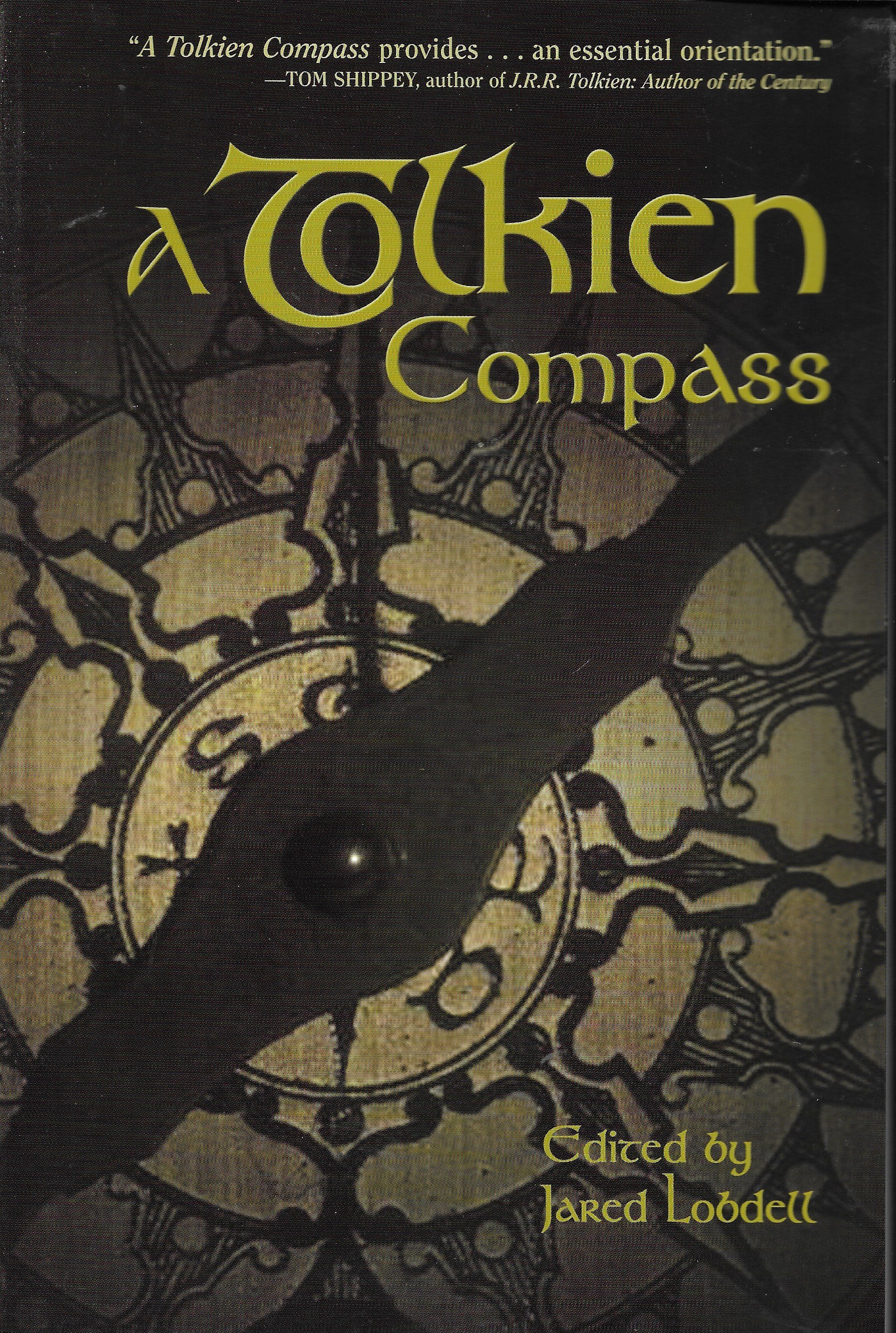A Tolkien Compass
Edited by Jared Lobdell, 2003, Open Court, 0875483038, 164 pages with index, trade paperback.
NEW.
This is a guide to the travel and characters of Middle-Earth. Can hobbits be psychoanalyzed? What was the relation between Tolkien's writing and the two World Wars? How seriously can we take the good-versus-evil morality of "The Lord of the Rings" as a useful guide to everyday life? Does Tolkien's Christianity shine through his imitations of pagan legends? The 11 chapters of this book, by different authors coming from different disciplines, treat Tolkien seriously as a literary artist and a cultural giant. The first chapter analyses the character transformation of Gollum, the second traces the "psychological journey" of Bilbo. Robert Plank sees the regime set up by Saruman at the end of "The Lord of the Rings" as a close parallel to fascism. Two chapters analyse Tolkien's narrative technique. Others investigate his use of myth and symbol within the broad Western cultural tradition.
Edited by Jared Lobdell, 2003, Open Court, 0875483038, 164 pages with index, trade paperback.
NEW.
This is a guide to the travel and characters of Middle-Earth. Can hobbits be psychoanalyzed? What was the relation between Tolkien's writing and the two World Wars? How seriously can we take the good-versus-evil morality of "The Lord of the Rings" as a useful guide to everyday life? Does Tolkien's Christianity shine through his imitations of pagan legends? The 11 chapters of this book, by different authors coming from different disciplines, treat Tolkien seriously as a literary artist and a cultural giant. The first chapter analyses the character transformation of Gollum, the second traces the "psychological journey" of Bilbo. Robert Plank sees the regime set up by Saruman at the end of "The Lord of the Rings" as a close parallel to fascism. Two chapters analyse Tolkien's narrative technique. Others investigate his use of myth and symbol within the broad Western cultural tradition.
Edited by Jared Lobdell, 2003, Open Court, 0875483038, 164 pages with index, trade paperback.
NEW.
This is a guide to the travel and characters of Middle-Earth. Can hobbits be psychoanalyzed? What was the relation between Tolkien's writing and the two World Wars? How seriously can we take the good-versus-evil morality of "The Lord of the Rings" as a useful guide to everyday life? Does Tolkien's Christianity shine through his imitations of pagan legends? The 11 chapters of this book, by different authors coming from different disciplines, treat Tolkien seriously as a literary artist and a cultural giant. The first chapter analyses the character transformation of Gollum, the second traces the "psychological journey" of Bilbo. Robert Plank sees the regime set up by Saruman at the end of "The Lord of the Rings" as a close parallel to fascism. Two chapters analyse Tolkien's narrative technique. Others investigate his use of myth and symbol within the broad Western cultural tradition.
